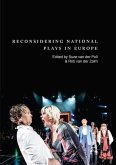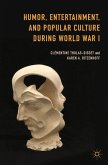Scenic spectacles collapse the borders of graphic and visual arts, multimedia technology, spectatorship and architecture. Drawing upon various systems of commercial, institutional and public spectacle that intersect with scenic stages of the national landscape, Tenneriello examines how spectacle is entrenched in the formation of national identity.
"In Spectacle Culture and American Identity, Susan Tenneriello examines how the drama of nation captures the mind's eye and infuses the political, social, and economic landscape, moving and static. The constructed spectacle idea and image that is America became pervasive, but the panoramic vision of America the bountiful was not always benevolent. Covering a vast historical span from 1815 to 1940, followed by a twenty-first century update in the epilogue, Spectacle Culture and American Identity is provocatively comprehensive." Barbara Lewis, Associate Professor, Director of Trotter Institute, The University of Massachusetts Boston, USA
"Backgrounds, however static, are coded. Several technologies were used to produce the spectacular, immersive views of America studied here, and numerous displays across the country meant that they reached much more of the population than standard scenery in urban theatres. Tenneriello demonstrates the political uses to which reproductions of the American landscape were put - and intimates that their present-day descendants continue to be exploited. Look around you and think about what you see." - Judith Milhous, CUNY Graduate Center, USA
"Backgrounds, however static, are coded. Several technologies were used to produce the spectacular, immersive views of America studied here, and numerous displays across the country meant that they reached much more of the population than standard scenery in urban theatres. Tenneriello demonstrates the political uses to which reproductions of the American landscape were put - and intimates that their present-day descendants continue to be exploited. Look around you and think about what you see." - Judith Milhous, CUNY Graduate Center, USA








